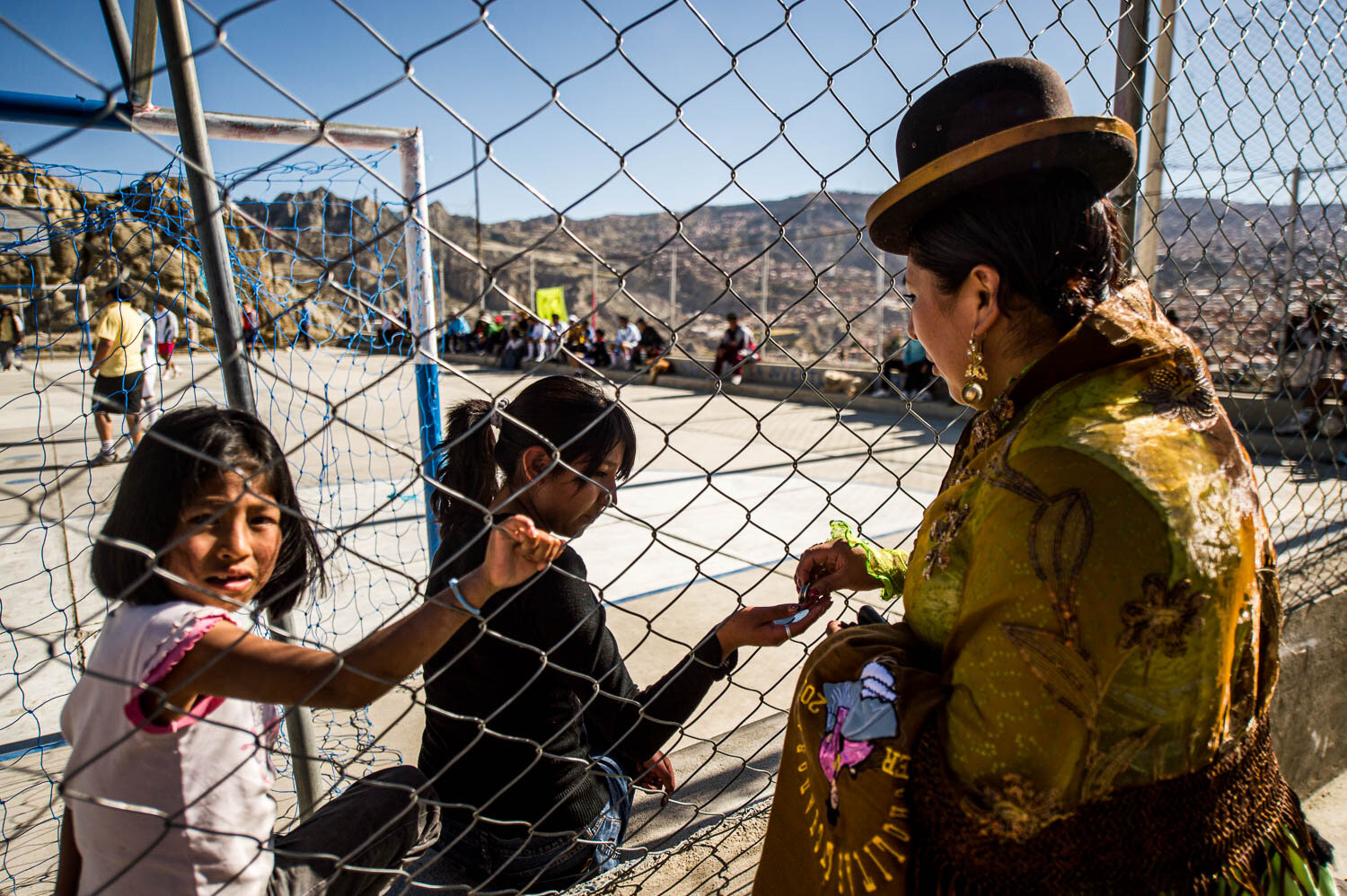
CHOLITAS: FIGHTING BACK IN BOLIVIA
Yolanda Veraluz was one of the first cholita luchadores in Bolivia. Like almost all her fellow female wrestlers, she’s indigenous Aymara.
Yolanda La Amarosa flies through the air in a swirl of gold lamé and petticoats, her calves clamped around the throat of her unfortunate opponent. He spins across the ring to land in a sprawl on the canvas, hand pressed against his lower back, face set in a grimace of agony. Quieres mas, cabron? Yolanda cries as she strides over and kicks him in the back of the head. There’s a ripple of applause and laughter from her fellow wrestlers, who are hanging on the ropes, waiting their turn to practice the same sequence.
The ring is set up in a junkyard on the outskirts of El Alto, a sprawling migrant city that was once just a suburb of La Paz, the capital of Bolivia. The wrestlers are training on torn mattresses atop wooden planks. It’s late afternoon and the sun dips quickly behind the peaks of the altiplano. At well over 4000 metres, the air is thin and freezing. As the session ends, Yolanda puts her bowler hat on at a jaunty angle, sits on a pile of bricks and asks me, que quieres saber…?
Yolanda Veraluz was one of the first cholita luchadores in Bolivia. Like almost all her fellow female wrestlers, she’s indigenous Aymara – a descendant of the Tiahuanaco culture that predated the Inca. Women started wrestling in Bolivia in the nineties, going head to head with the men. In a country where machismo is almost a reflex, the cholita luchadores have become a symbol of female empowerment – a fact of which Yolanda is all too aware. “We’ve shown that women don’t have to accept discrimination and humiliation… that a woman can speak with the same voice as the man. She has the same rights as her husband – to study, to work, to get ahead.”
Once derogatory, the chola moniker has become a source of pride. In October 2011, many of the top cholita wrestlers broke away from the main wrestling organization, Titanes del Ring, which was dominated by one man, Juan Mamani. Disillusioned with Mamani’s autocratic approach, they set up an independent association and are going it alone. “Juan Mamani stole our money,” says Yolanda. “But we realized that we don’t need him. We can do this ourselves.”
Populist president Evo Morales has been a vocal champion of Bolivia’s predominantly poor indigenous population – in particular its women. In 2010, he put together a cabinet that was evenly split between genders and which included three indigenous women. There are now signs of an emerging indigenous middle class in the capital La Paz. “Five years ago, we were looked down upon – we used to just wait on the rich,” Yolanda tells me. “But now, thanks to our President, we’re working in banks, in offices and even in government.”

















